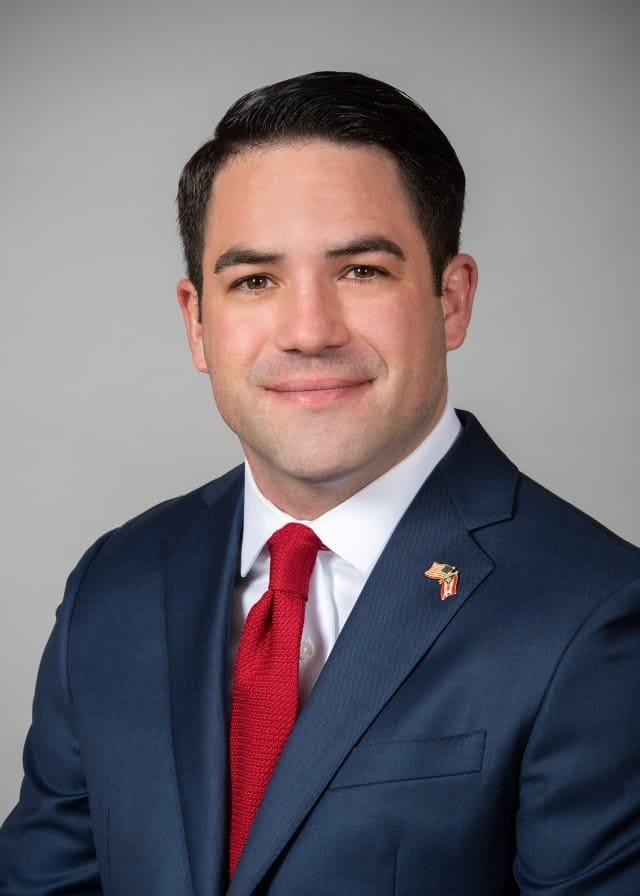Ohio must encourage innovation and protect privacy: Op-Ed


State Representative Steve Demetriou is currently serving his first term in the Ohio House of Representatives.
The Ohio tech sector is booming. Last year, Ohio added over 7,500 tech jobs, complementing the already existing 270,000 tech workers in the state. These workers earn an average of $84,810 and contribute $32.6 billion to Ohio’s economy. One tech sector that is growing but could have an even larger impact is the digital asset or cryptocurrency industry. If Ohio, and the rest of the United States, want to capitalize on this more than $1 trillion industry, they need to pass sensible regulation to enable entrepreneurs to continue investing and creating wealth in the Buckeye State.
Many Ohioans are already familiar with digital assets such as Bitcoin and Ethereum, as roughly 1.3 million of us own some kind of digital asset. We use digital assets for various reasons, such as privacy, investment, and even for nearly instant international payments.
To support all these users, a variety of businesses have emerged in Ohio. These include companies like River Financial, which facilitates the easy purchase and saving of Bitcoin, as well as large Bitcoin data centers like Standard Power, which are refurbishing old industrial areas and creating dozens of jobs.
However, the growth in both adoption and job creation is being hindered by a lack of regulatory clarity in Washington D.C. and Columbus. But with some political will, this can soon change.
The Financial Innovation and Transparency for the 21st Century (FIT21) Act was recently introduced in the United States House of Representatives and represents a significant step toward making the United States a leader in digital asset technology.
The FIT21 Act proposes several important measures aimed at bringing regulatory clarity to digital assets. These include the creation of a Crypto Regulatory Council, responsible for ensuring that digital assets are not used in illicit finance. The bill also outlines provisions for tax reporting, investor protection, and the promotion of innovation.
Startups and established companies in the digital asset space will benefit from clear rules, allowing them to focus on technological advancements and market growth rather than navigating a confusing and uncertain legal landscape.
As the United States is one of the last major economies to pass comprehensive digital asset laws, it’s time for sensible bipartisan agreement on this issue.
This provides Ohio an incredible opportunity to assert a leadership role in the digital asset sector and become a model of good governance for both the federal government and other state legislatures.
In 2024, I will introduce the Blockchain Basics Act, which will create a first-of-its-kind framework for digital assets in Ohio. The legislation will accomplish key tasks such as defining digital assets, guaranteeing Ohioans’ right to own and transact digital assets, and establishing a tax structure. This commonsense policy will signal to innovators that Ohio is open for business.
I also introduced this legislation to protect Ohioans’ core rights to conduct their economic lives free from government surveillance. Many are concerned about Central Bank Digital Currencies (CBDCs).
These digital dollars, created by the federal reserve, could be used to monitor all our transactions, and even be programmed to prevent the purchase of certain goods or services. I have introduced alongside my colleague Rep. Tom Young (R-Washington Twp.) House Bill 155, which will prevent the use of CBDCs in Ohio and ensure that we do not allow big government overreach into our financial decisions.
I want the message from Ohio to be clear: we oppose the creation of a government-mandated digital currency and support the right of Ohioans to use private digital assets free from government snooping.
The digital asset industry is not going away anytime soon. America and Ohio must lead the way to ensure we are open to innovation and job creation while protecting the American values we hold so dear.
I urge Congress to pass the FIT21 Act, and I will work to ensure Ohio is at the forefront of this new industry.
State Representative Steve Demetriou is currently serving his first term in the Ohio House of Representatives. He represents the 35th House District, which encompasses southern Geauga County, south and eastern Portage County, and portions of eastern Summit County.





